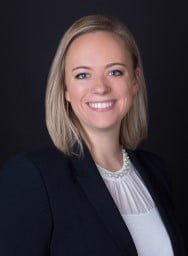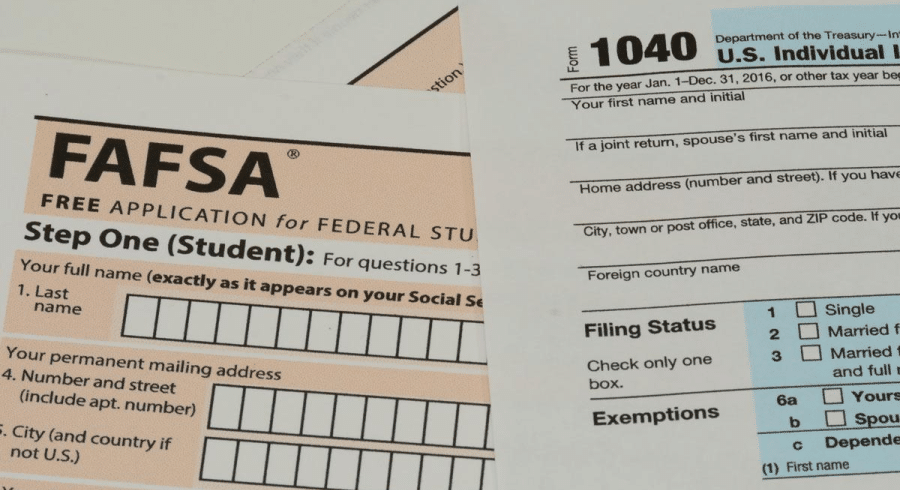Financial Planning for Female-Led Households with Emily Rassam
A financial advisor specializing in female-led households can help couples come together to build a personalized plan to achieve their goals.
Long gone are the days when a stereotypical household led by a dominant male with a stay-at-home wife was portrayed as the norm in the US. While there’s more work to be done in areas like gender equality and equitable compensation for women in the workplace, an increasing number of households are now led by women.
In these female-led relationships, women assume primary responsibility and oversight for many important household matters, with family finances often near the top of the list.
If you’re the head of a female-led household, you may be looking for a financial advisor who understands the dynamics of your relationship and specializes in working with couples whose circumstances are similar to your own.
You’ll likely find dozens of nearby financial advisors well-suited to help you reach your money goals with a personalized plan. But it may be more difficult to find a financial advisor who specializes in serving female-led households.
Fortunately, many financial advisors offer virtual services so you can meet online no matter where you (or they) live. This means you can choose to hire a specialist financial advisor who lives hundreds of miles away if you decide their knowledge and experience working with individuals and couples in female-led relationships is a better fit to help with your unique financial planning needs.
Financial Planning for Female-Led Households
💡 In the Q&A below, you’ll gain insights from financial advisors who work with female-led households to help them make smart decisions to enjoy life more today while preparing for a comfortable retirement in the future.
Q&A: Financial Advisors Specializing In Female-Led Households
Answers to Questions for Female-Led Households with Emily Rassam, CFP®, CRPS, AIFA, NSSA, CDAA
Emily Rassam is a financial advisor in Charlotte, North Carolina, who works closely with clients in female-led households. We asked Emily to answer a few questions based on her experience working with these clients to help others in similar circumstances.
Q: What is a common financial planning challenge unique to female-led relationships that you frequently encounter when working with your clients? How do you work with them to overcome this challenge?
Many women choose to work with me after a bad past relationship with a financial advisor. In my experience, it’s all-too-common that an advisor condescendingly addressed their partner as the primary, talked over them, or treated them like “a little old lady.”
During initial conversations with a new client, I take the time to understand the personality styles of the household members and who takes on the primary responsibilities of managing the finances. It is important to recognize how each individual wants to be addressed and how they communicate. We elicit responses from the non-primary member as well and will often help mediate differences in their answers. The plans and strategies we build must consider both partners’ goals, thoughts, and preferences.
Women, more so than men, face unique challenges in the wealth-building and wealth-preservation processes. Women are more likely to step back from their careers to raise a family, help care for aging parents, and manage the household. To this day, there’s a wage gap where women, especially POC, receive less pay than their male counterparts when applying for and working in the same job with identical experience and credentials. Additionally, women live longer than men and are more often will require expensive long-term care. My female clients are more likely to want to be concerned with holding more money to cover uncertain costs during their final years.
Q: For women who are the head of the household and unsure whether they should hire a financial advisor at the current point in their lives, what guidance can you provide to help them make a more informed and educated decision?
While we no longer live in villages, there is still a desire for community and to learn and educate ourselves about topics. We also want to be heard and understood. In my experience working in the financial industry, women do not want to be told what to do. They desire to partner with a quality planner on the important financial decisions that shape their lives. Women want to understand and feel comfortable with strategies and risks along with being equipped with resources to learn more.
I believe that some independent women choose not to hire an advisor because they want to maintain control over financial decisions. It’s also unfortunately common that they had a bad previous relationship with a financial advisor. Finding the right advisor with whom to work is paramount – I recommend interviewing several advisors until you find someone who can help you organize your economic life, collaborate on financial planning decisions, and bring value to systems you already have.
Get to Know Emily Rassam, Financial Advisor for Female-Led Households:

View Emily’s profile page on Wealthtender or visit her website to learn more.
Q: How do the services you offer women who are the primary breadwinner in their household distinguish your firm from other advisory firms?
There are four facets to our financial planning approach that make Archer stand out.
- Financial Personality Profiling. Women are often more interested in reflecting internally on what makes them tick. We take the time to understand our client’s relationship with money and why they spend and save the way they do.
- Risk Profiling. Along with a personal approach to financial planning, we use state-of-the-art software to gauge clients’ risk tolerance to identify the level of volatility each person is willing to accept. We never assume we know better than our clients, nor do we push them into portfolios outside of their comfort zone.
- Financial Life Planning. Not everything can be determined from a computer program, however. Our female clients, in particular, engage in deep conversations that stem from thought-provoking softer types of questions. Those discussions and collaborations help build the best financial plans.
- Stress Test Scenarios. Our financial plans project more than just the ‘likely’ outcome. We test the client’s plan against many ‘what-if’ scenarios, including poor future market performance, higher inflation, and living longer than expected.
Q: When you first speak with a woman in a female-led relationship, what questions do you like to ask to understand her unique circumstances better and determine how you can best her achieve her goals?
It is all about understanding what matters to her. What are her values, and what has shaped her life – both from a financial point of view and more broadly? Here are some of my favorite questions to ask:
- Have you worked with a financial planner before? What went well, and what could have been improved?
- What challenges get in the way of achieving your financial goals?
- What do you want to accomplish in today’s meeting? What does a successful meeting look like?
- What would happen if your financial goals come true? How would you know when this happened, and how would it be measured?
- Paint a picture of your retirement – how do you fill your days, and how do you feel?
- If you could solve one financial issue today by waving a magic wand, what would you solve?
Q: What questions do you recommend women in a female-led relationship ask financial advisors they’re considering hiring to help them determine if they are a good fit?
Ask the advisor to take you through their financial planning process and a sample financial plan. You will learn a lot about the considerations and assumptions used. Overall, you want confidence in the advisor’s technical knowledge, but also their ability to understand you and your values.
Do they seem right to you? Which what-if scenarios do they run your plan against? Women generally want to know that their plan will hold up if (and when) things go wrong at times.
Also, follow your gut. Do you enjoy conversations with this financial advisor? Are you seen, heard, and understood? Are they also handling the human side of money and planning considerations beyond the math? Are you confident the advisor will work with you at your risk tolerance level? Or do you feel pressured into higher- or lower-risk investments than you are comfortable with?
Q: Is there a particularly memorable experience or a moment in your life when you first decided that you wanted to specialize in serving women in female-led relationships?
I will never forget my frustration when my husband and I had to open a new bank account. I explicitly told the banker that I handle our household finances and am the primary on the account. I am listed first on all our accounts, and my contact information is primary. Even though I made this clear, the banker volleyed questions to my husband, my husband was made primary on our newest joint checking account, and they call him first with any questions. I have also been told to “check with my husband” before making a major purchase, implying I’m not capable to make that type of decision for our household.
These are two of many first-hand experiences that I’ve had as the primary manager of our household finances. It instilled in me that women are still not as respected as men in the financial world. It’s sad. And these events still, to this day, drive me to do all I can to serve women in female-led relationships.







